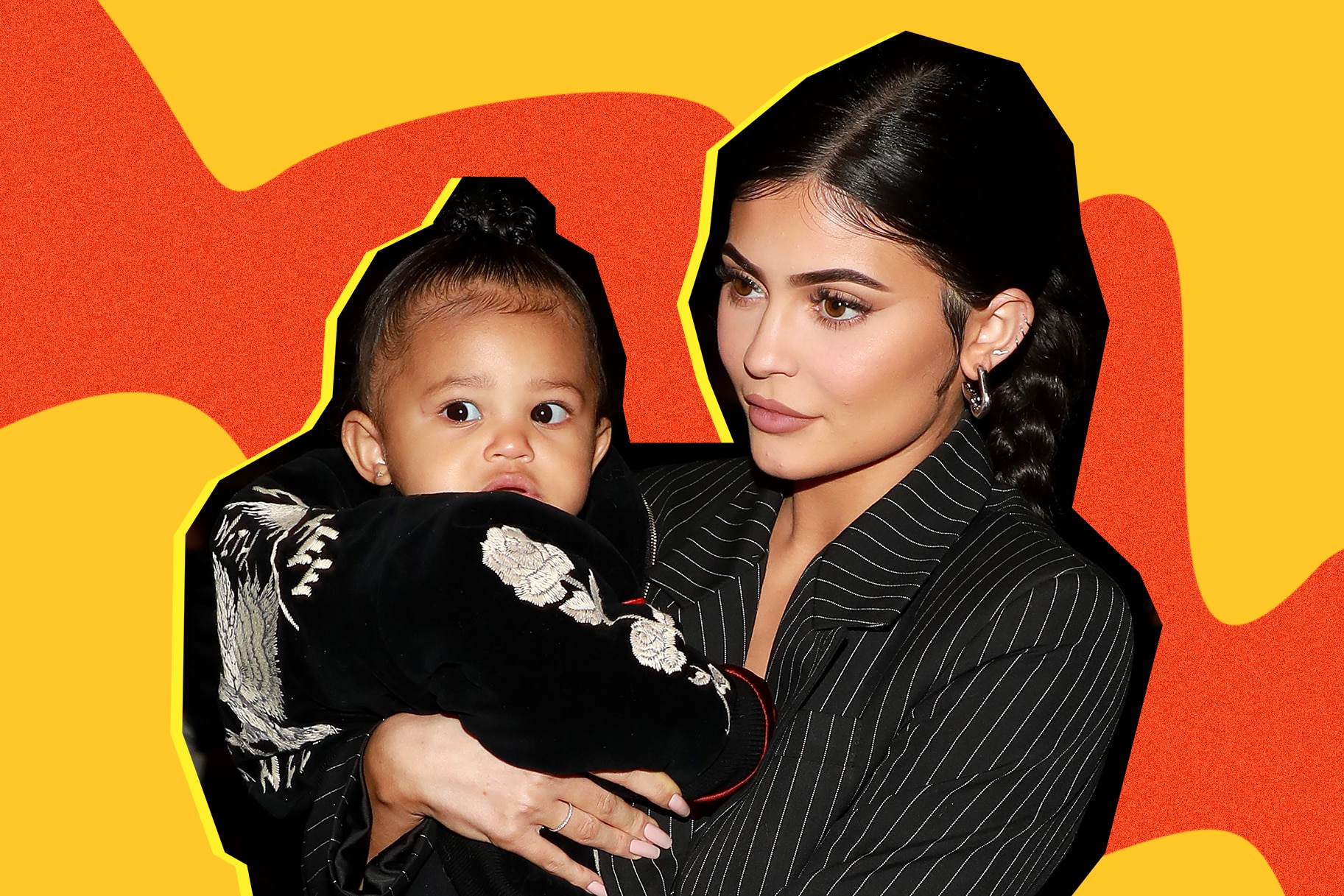Panicked by Kylie Jenner’s Emergency? What Parents Need to Know About Babies and Food Allergies
Kylie Jenner revealed she rushed baby daughter Stormi Webster to the hospital following an allergic reaction.

Kylie Jenner has revealed that her weekend brought a terrifying incident for any parent: She had to take her one-year-old baby Stormi Webster to the hospital for treatment after an allergic reaction.
"Spent the day in the hospital with my baby," she wrote on Instagram, along with an image of Stormi sleeping soundly. "She had an allergic reaction and is 100% okay now and we are home. Nothing else matters when these things happen. God bless all the moms with sick babies. I'm sending so much love and positive energy your way."
While she didn't immediately specify what caused the reaction, a source told People that the Keeping Up With the Kardashians family faced what seemed to be a "food-related reaction." And it wouldn't be the first time: Kris Jenner also revealed that her grandson Mason had to be rushed to the hospital after an allergic reaction to peanut butter.
Naturally, with food allergies so squarely in the news, people are worried. And specifically, parents of babies — like Kylie — have legitimate cause for concern as they experiment with offering brand new foods for the first time ever. So what can people do to stay safe?
Dr. Katie Marks-Cogan, chief allergist at Ready, Set, Food! and and allergist/immunologist at Clear Allergy, provided some tips to The Feast.
Food Allergy Tips for Parents: Introducing New Food to Baby
Exposure is actually a good thing, Marks-Cogan explains. "Recent landmark studies show that introducing infants to common allergenic foods (such as peanut, egg, and milk) early and often can help reduce their risk of developing a food allergy by up to 80 percent. The results of these studies have led the AAP and NIH to develop new clinical guidelines for allergen introduction. Notably, these guidelines recommend introducing babies to common allergenic foods as early as four to six months of age."
For maximum safety and efficacy when introducing allergenic foods, parents should follow some critical guidelines.
First, timing is everything. "When you're ready to introduce allergenic foods, choose a time when your baby is healthy. Also, make sure that an adult can closely monitor your baby for at least two hours, to watch for any signs of a reaction," the doctor advises.
As well, "Introduce one allergenic food at a time, as pediatric guidelines recommend. Wait three to five days in between introducing each new allergenic food to identify if your child has a reaction."
She advises, "Start with a smaller dose of each allergen and slowly increase the dosage. This gradual approach was used in some of the landmark studies."
Struggling to follow these recommendations? That's normal — and it's only human. "So be creative about how to include allergens in your baby's diet," Dr. Marks-Cogan says. Here are some DIY early allergen introduction ideas.
Food Allergy Tips for Parents: Identifying Food Allergy Attacks in Babies
In babies, hives and vomiting are the most common symptoms of a food allergic reaction. These symptoms usually occur within seconds to minutes and almost always within two hours. “Other symptoms of an allergic reaction can include redness of the skin or eyes, swelling, congestion, shortness of breath, and diarrhea,” Marks-Cogan explains. “When the symptoms are severe and involving more than one organ system it’s classified as anaphylaxis, and this can be life threatening.”
She adds, “Keep in mind that one reaction can vary widely from the next in the same person. So, it’s impossible to predict what type of reaction a person will have each time they eat a food that they are allergic to.”
Food Allergy Tips for Parents: What to Do If Your Baby Is Having a Food Allergy Attack
Of course, if you suspect that your child is having an allergic reaction, immediately stop feeding them the allergenic food. Then — as did Kylie — “Seek immediate medical advice from your pediatrician or allergist.”



